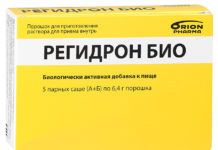The role of a safe and low-calorie sugar substitute is applicable to many plants. Stevia, agave syrup - the beginning of the list of alternative sweets. However, there is a risk of abuse of such products when they receive harm instead of the expected benefits.
Material Content:
Agave syrup - what is it, composition and calorie content
Agave plants are very popular in their homeland in Mexico. The population uses leaf juice for the manufacture of molasses, alcoholic beverages, and is used to treat diseases. Not everyone knows how to get agave syrup. What it is? This is a condensed juice, nectar containing monosaccharide, fructose, inulin polysaccharide. Useful substances in large concentrations can lead to problems.
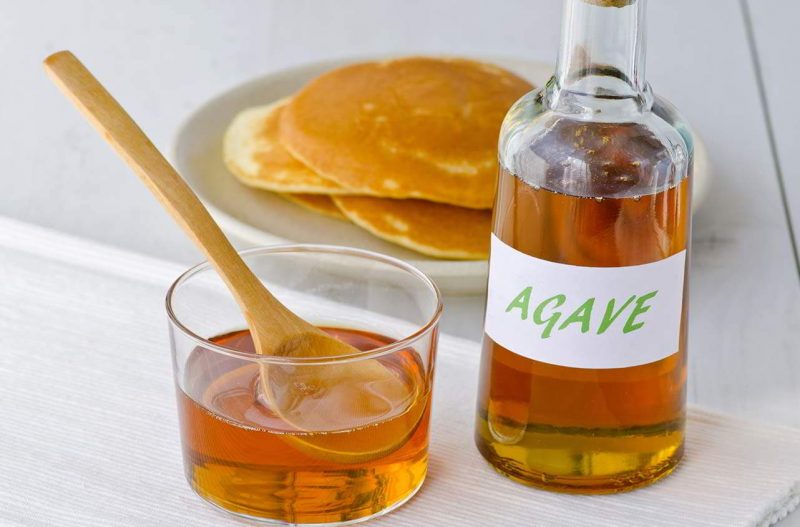
Agave pulp and syrup contains:
- mono- and polysaccharides;
- vitamins K, A, E, group B;
- aloins, essential oils, resins;
- mineral components.
Dozens of compounds are present in agave juice, as in other natural products. Many of them are poorly studied in terms of pharmacological properties.
Agave syrup weighing 100 g contains almost 71 g of carbohydrates, 0.14 g of fat, 0.04 g of protein. The calorific value of this amount of nectar is from 288 to 310 cal. The product is sweeter than cane sugar. Diabetics find overseas sweetness less harmful to themselves.
How to cook the product
Before flowering, the juice of leaves of adult plants of certain species is collected. A clear liquid with a greenish tinge has a sweet taste. After digesting the juice, a thick syrup is obtained that resembles honey in consistency.The darker the color, the more intense the caramel flavor and taste of the product. Blue agave syrup is distilled to produce tequila.
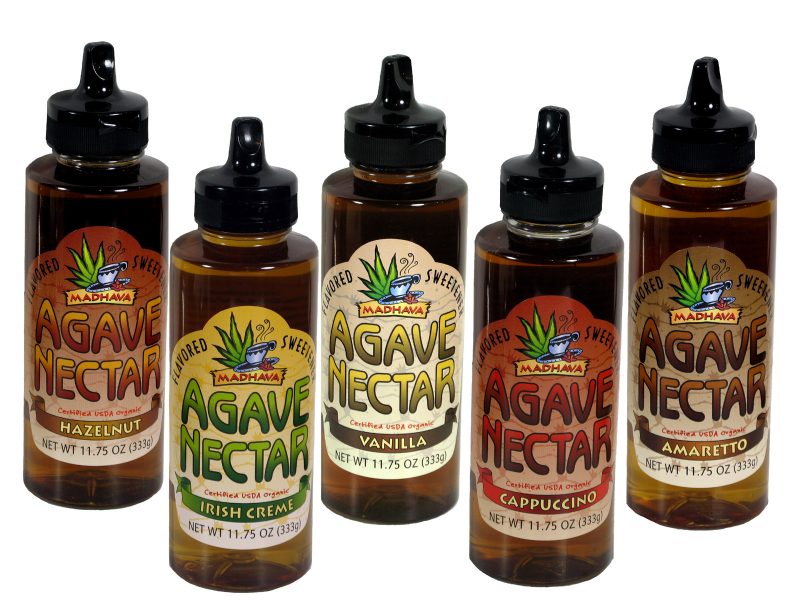
Raw sugar beets are processed for more than eight hours. Ready refined sugar does not contain vitamins and minerals, only the so-called empty calories. When digesting agave juice, many natural substances are also destroyed. The difference is that sucrose consists of residues of the glucose molecule and its isomer, fructose (1: 1). Agave syrup contains fructose.
What can be replaced
Refined sugar is more addictive than multicomponent natural substances. Proponents of a healthy diet refuse sucrose. Natural sweeteners, including agave syrup, have become popular. If fructose intolerance and in a number of other cases, it is necessary to find a substitute for this product.
It is interesting: agave plant
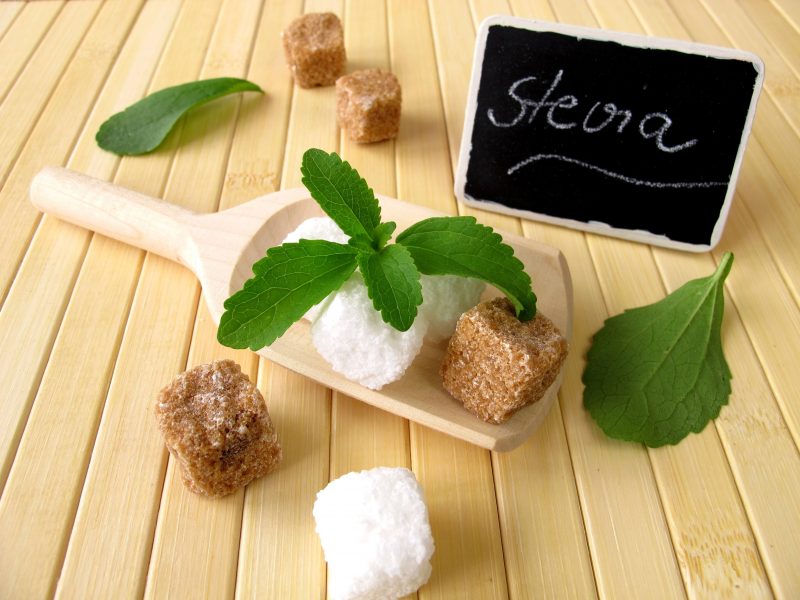
Stevia is sweeter than sugar, contains no calories. Create a powder suitable for everyday use from the leaves of this plant with the use of chemicals that extract the steviol glycoside. It is an acceptable sugar substitute, especially for diabetics. The product is resistant to heat, although not very suitable for baking.
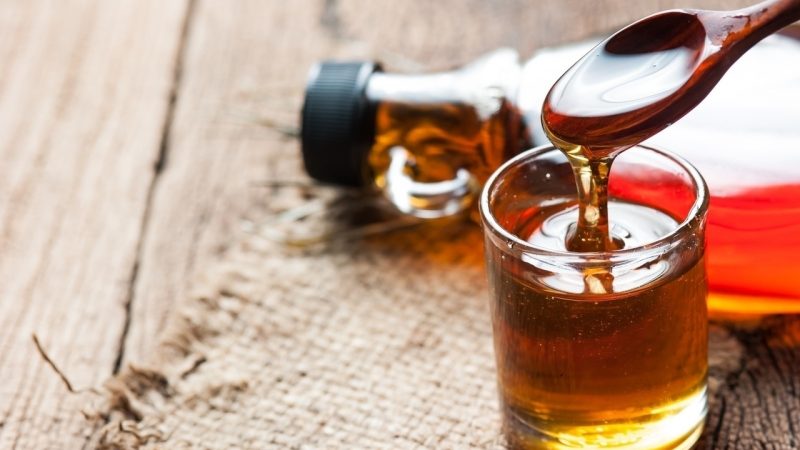
Maple Syrup is a sweetener made from sugar maple. The product contains sucrose and fructose, water, polysaccharides, macro- and microelements. Maple syrup is healthier than regular sugar, but it is often faked.
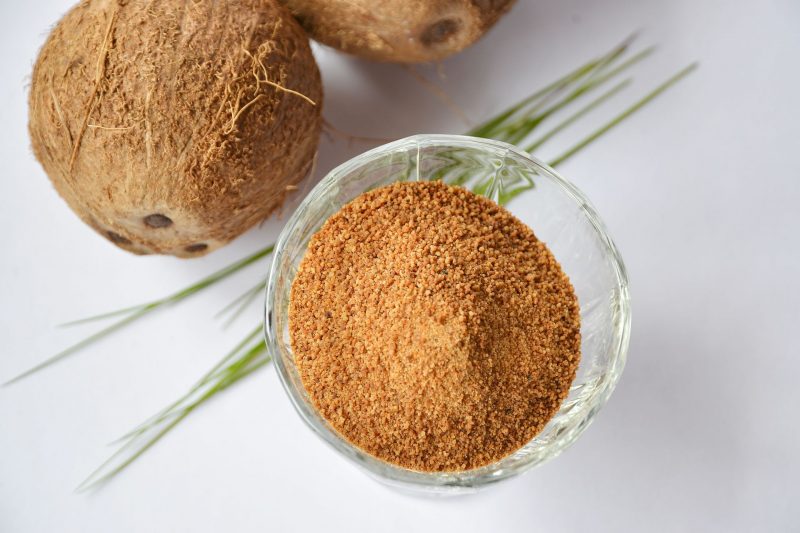
Palm sugar is obtained from the juice of certain types of palm trees. In addition, palm honey is produced. Very sweet foods are widely used in the cuisine of Southeast Asia, have found many fans in Europe.
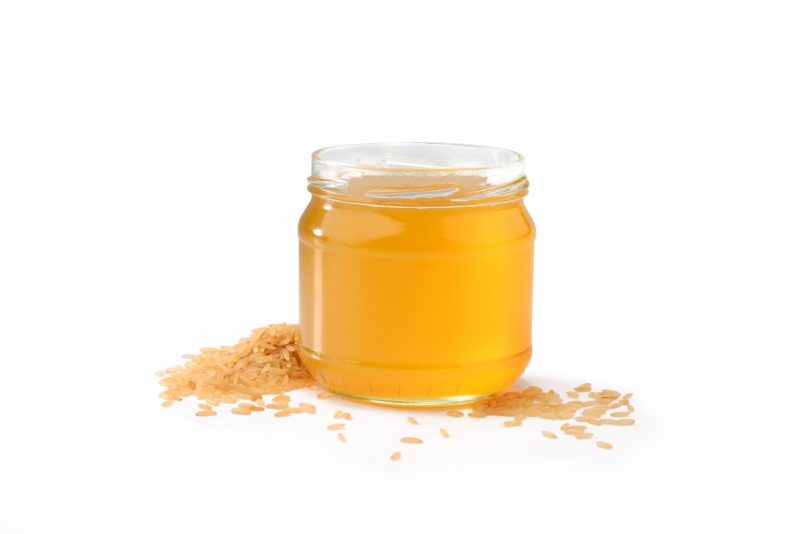
Rice syrup is used instead of sugar in Japan. Product with a mild flavor, light caramel flavor. Rice syrup contains glucose and maltose, fructose is not in the composition. Calorie content is lower compared to regular sugar. Unlike agave juice, it is suitable for people with fructose intolerance.
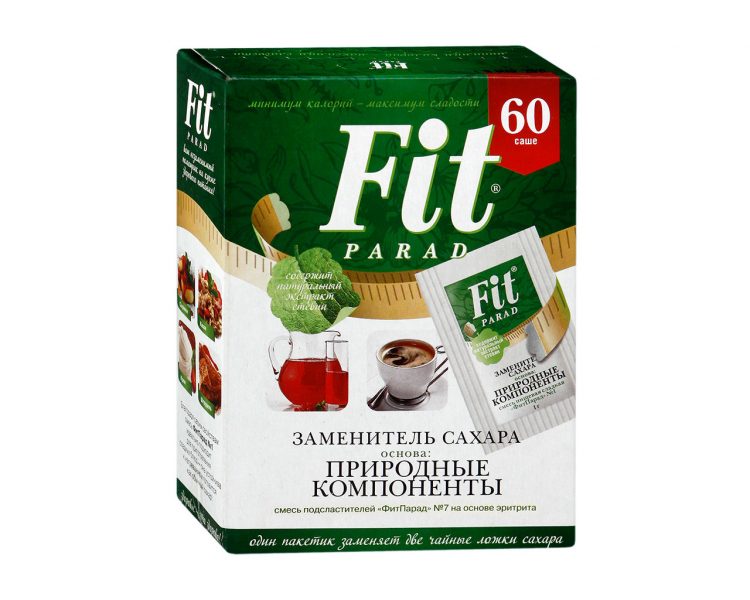
A new generation of sugar substitutes is represented by erythritol. The calorie content of the sweet product and its glycemic index is about 0. Erythritol does not serve as food for bacteria in the intestine, therefore it does not provoke increased fermentation, very rarely causes diarrhea or flatulence. It has little effect on blood sugar.
Agave Syrup Glycemic Index
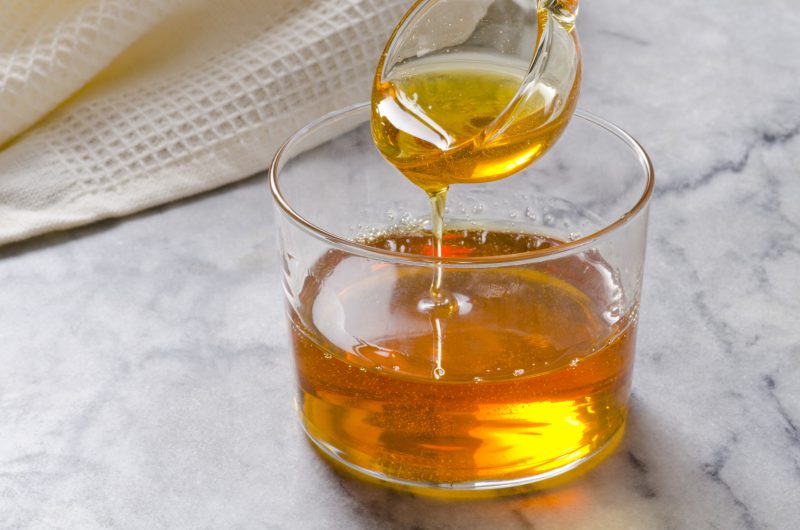
Carbohydrates after absorption by the body increase blood sugar. For glucose, this indicator (glycemic index) is 100. The higher the GI, the stronger the negative effect of the product on metabolic processes, the metabolism of carbohydrates, insulin and pancreatic function. The glycemic index of agave syrup is at the level of 15-17 units. For comparison: the GI of different varieties of honey varies from 38 to 90.
Health benefits
Agave syrup is used as an alternative to sugar. A person who uses a natural sweetener reduces the amount of glucose entering the body and the caloric content of food.
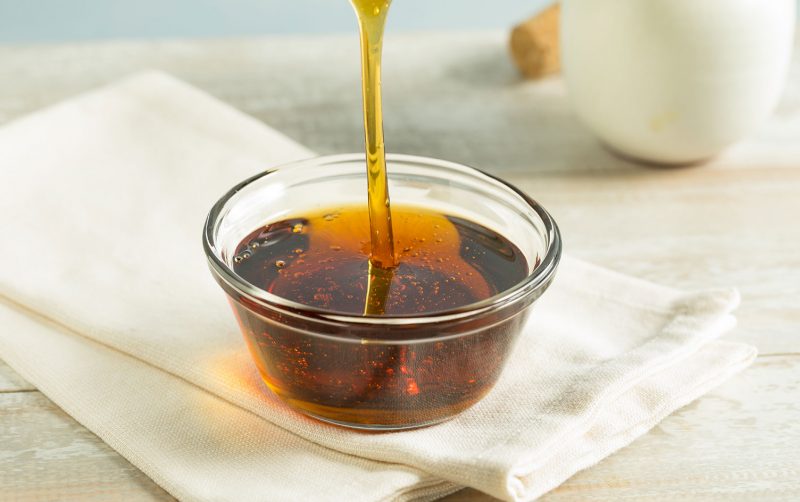
By alternating agave syrup with other natural sweeteners, you can completely remove refined sugar from the diet.
Such a replacement has a beneficial effect on the condition of the gastrointestinal tract, blood vessels, teeth, and skin. Significantly reduced the risk of developing diabetes. In addition, agave syrup is useful for the intestines, gall bladder, nervous system. Sweetener removes excess water from the body along with toxins, normalizes metabolic processes, helps to get rid of excess weight.
The use of agave syrup in medicine
Leaves contain hormone-like substances - steroidal saponins. After processing at pharmaceutical enterprises, hormone preparations widely used in scientific medicine are obtained from them: cortisone and progesterone. The first of the two substances is a powerful anti-inflammatory agent that affects the metabolism and resistance of the body to stress.
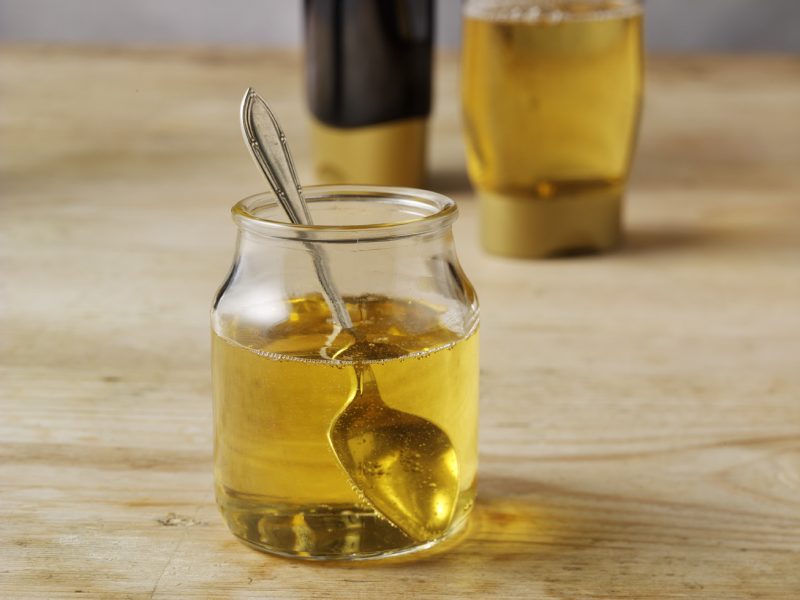
Progesterone is a sex hormone. In the body of a woman, it affects the alternation of the phases of the menstrual cycle, the onset and course of pregnancy. Progesterone is important for the synthesis of other hormones in the body.
The roots, leaves and juice of some types of agave are used in folk medicine. The tool enhances intestinal motility, which is useful in some diseases and conditions of the gastrointestinal tract. The laxative effect is noticeable 10 hours after drinking the syrup. The anti-inflammatory and expectorant properties of agave are appreciated. Syrup replaces sugar and raspberry jam during seasonal infectious diseases. When added to water, tea is an analgesic, antipyretic drink.
Use in cosmetology
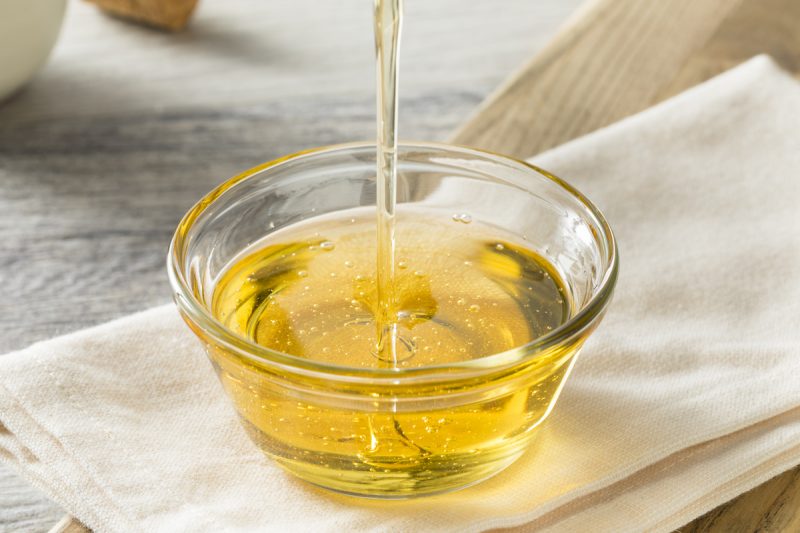
Agave juice is used externally to relieve inflammation in the area of acne (hormonal, teenage), proper healing of the skin after abscesses, boils.
Possible harm from use
The benefits and harms of agave syrup are high in fructose in condensed juice - up to 85%. The body needs carbohydrates, but many people suffer from intolerance in old age. Fructose enters the body with sugar, apples and other fruits, juices, agave syrup.
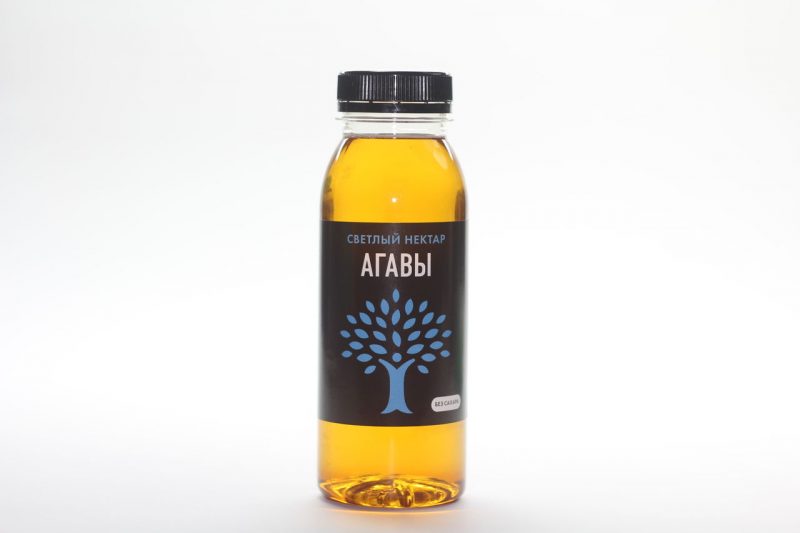
The presence of glucose isomer in the body is associated with the appearance of metabolic syndrome. This is the name for the combination of obesity, high blood pressure, type 2 diabetes, and insulin resistance. A daily dose of not more than 25 g of fructose is considered safe.







